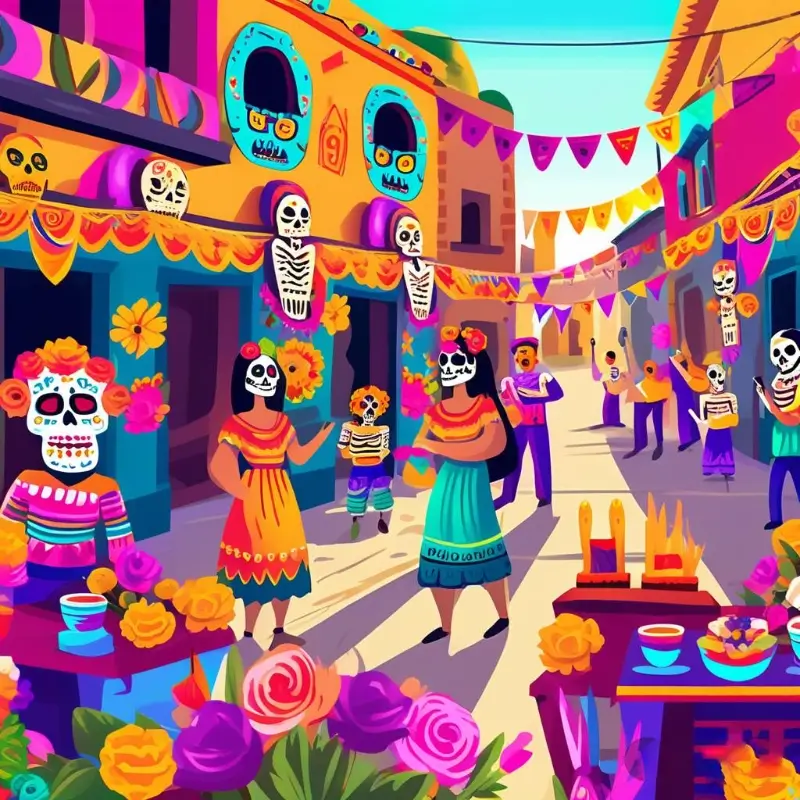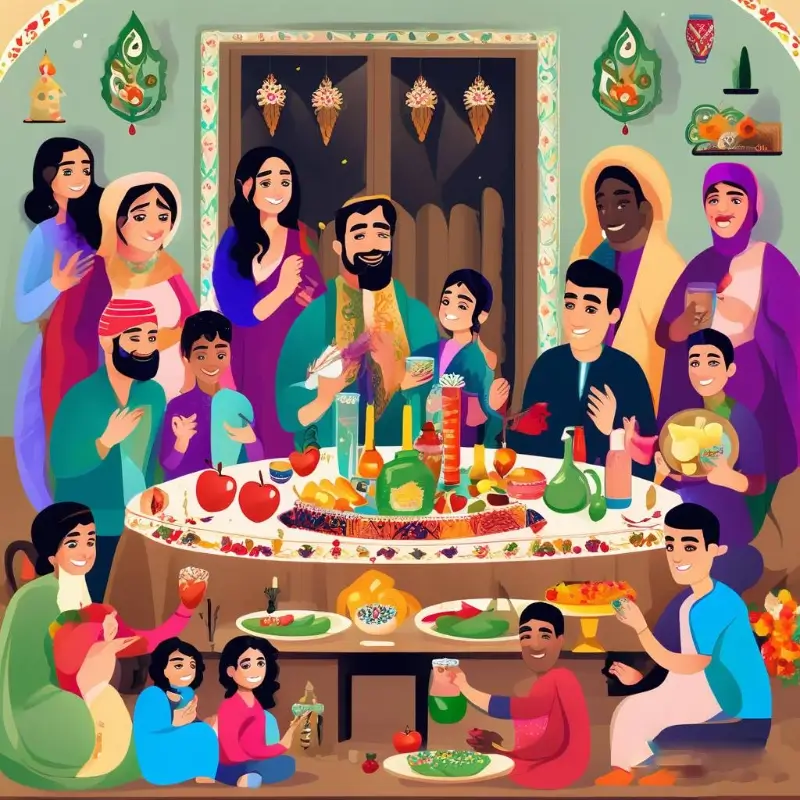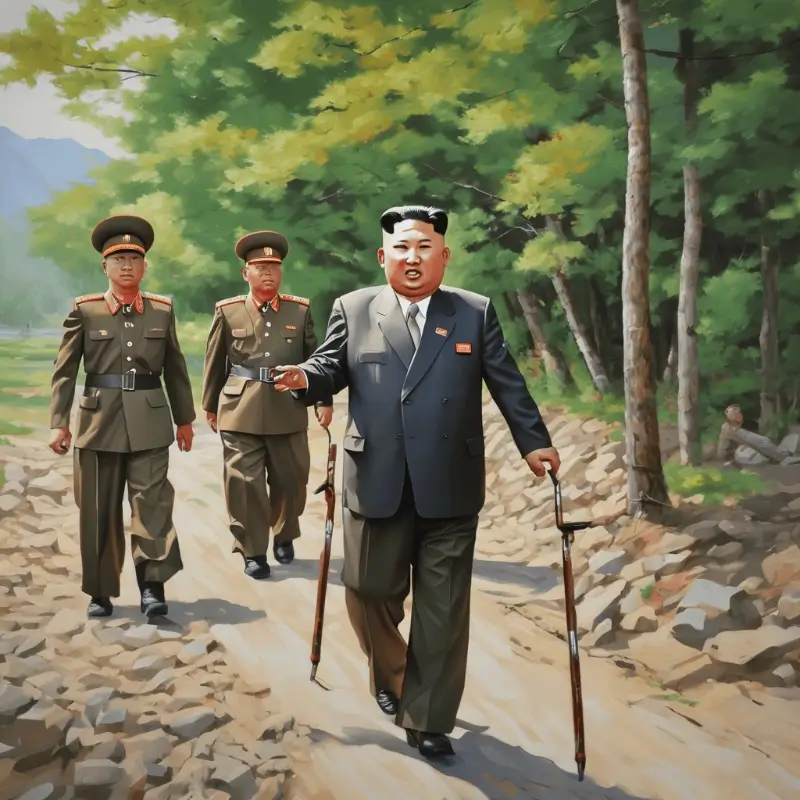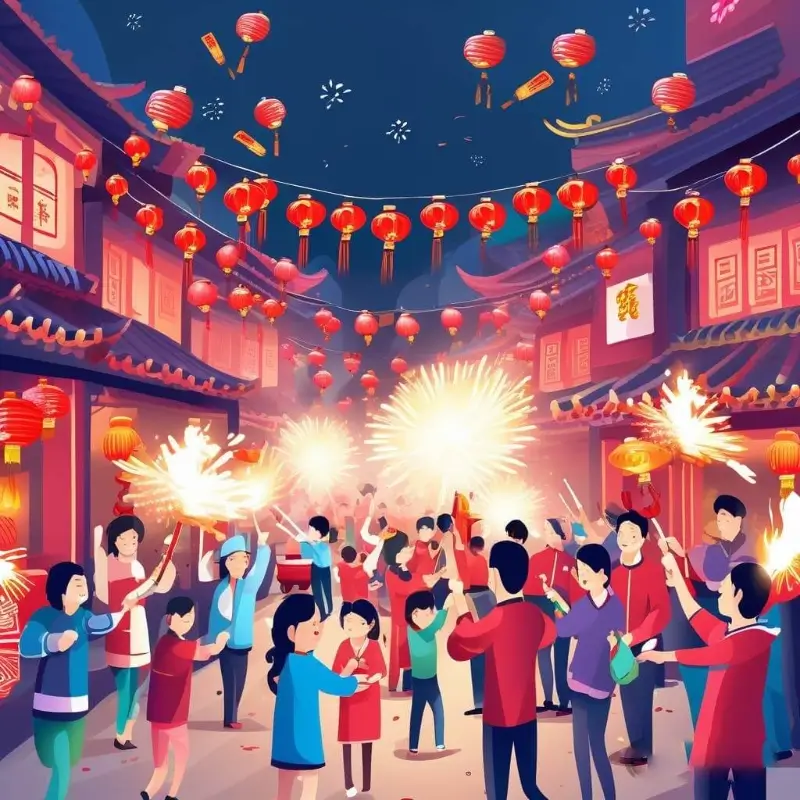why do Mexicans celebrate day of the dead(Día de los Muertos)?
The Day of the Dead (Día de los Muertos) is a Mexican holiday that is celebrated on November 1st and 2nd. It is a festive occasion that combines pre-Columbian native traditions with Christian beliefs. The holiday is a way for Mexicans to honor and remember their deceased loved ones, but it is not a somber event as one might expect. Instead, it is a time of joy and celebration.
Here are several reasons why Mexicans celebrate Day of the Dead:
- Cultural Heritage: The Day of the Dead is deeply rooted in Mexico’s pre-Hispanic culture. The Aztecs and other indigenous groups celebrated similar rituals to honor the deceased. The modern celebration is a blend of these ancient traditions and the Catholic observance of All Souls’ Day and All Saints’ Day.
- Remembering Loved Ones: Day of the Dead is a way for families to remember and honor their ancestors and deceased family members. It is believed that during this time, the souls of the departed return to their former homes and enjoy the festivities.
- Cultural Continuity: By celebrating Day of the Dead, Mexicans maintain and pass on their cultural heritage to future generations. It is a way to preserve the stories, traditions, and memories of their ancestors.
- Food and Offerings: Part of the celebration involves creating ofrendas (offerings), which are elaborate altars decorated with candles, flowers, photographs, and the favorite foods of the departed. These offerings are meant to nourish the souls of the dead during their visit.
- Community and Family Bonding: Day of the Dead is a time for families and communities to come together. People often gather at cemeteries, homes, and community altars to share stories, food, and beverages. It’s a celebration that strengthens social bonds and reinforces the importance of family and community.
- Acceptance of Death: Unlike many cultures that view death as a taboo subject, Day of the Dead Normalizes the conversation and presence of death. It is seen as a natural part of the life cycle and is celebrated with humor and joy, rather than fear or sadness.
- Celebration of Life: The holiday is also a celebration of life, as it emphasizes the importance of living life to the fullest. The vibrant colors, music, and dances associated with Day of the Dead are a testament to the joy of living.
Mexicans celebrate the Day of the Dead (Día de los Muertos) as a festive and colorful occasion to honor and remember deceased loved ones. The origins of this celebration date back to pre-Columbian Mesoamerican cultures, particularly the Aztecs, who commemorated their deceased relatives during a month-long festival dedicated to the goddess Mictecacihuatl. Following the Spanish colonization, indigenous customs merged with Catholic traditions, leading to the current observance of the Day of the Dead on November 1st and 2nd, coinciding with the Catholic feasts of All Saints’ Day and All Souls’ Day.
The core belief behind this festivity is that during these days, the spirits of the departed return to the earthly realm to be with their families. Celebrations include:
- Altars (Ofrendas): Families build altars in their homes or at gravesites adorned with offerings such as photos of the deceased, candles, incense, marigold flowers (cempasúchil), sugar skulls (calaveras), favorite foods, drinks, and personal items of the departed.
- Food and Drink: Traditional foods like pan de muerto (bread of the dead), mole, tamales, and beverages enjoyed by the deceased are prepared and offered as a welcoming gesture.
- Visits to Cemeteries: Families clean and decorate graves, often spending the night in the cemetery sharing stories, playing music, and celebrating the lives of the departed.
- Art and Symbolism: Skeleton-themed decorations and brightly colored imagery are displayed everywhere, representing the joyous reunion rather than mourning the loss.
The Day of the Dead is a vibrant and life-affirming tradition that acknowledges death as a natural part of life’s cycle, cherishes memories of the past, and fosters a continued bond between the living and the dead. Through these celebrations, Mexicans keep alive the memory and spirit of their ancestors and loved ones who have passed on.



